What is known about North Korea's brutal purge?
- Published
News of the fall from grace and execution of the once powerful uncle of North Korea's leader Kim Jong-un emerged in the space of 10 days.
Such a public display of state brutality is unprecedented, but the ultra-secretive nature of the state means that observers can never really claim to know exactly what happened and when.
This is how the news came out.
Chang Song-thaek was once considered the power behind the throne
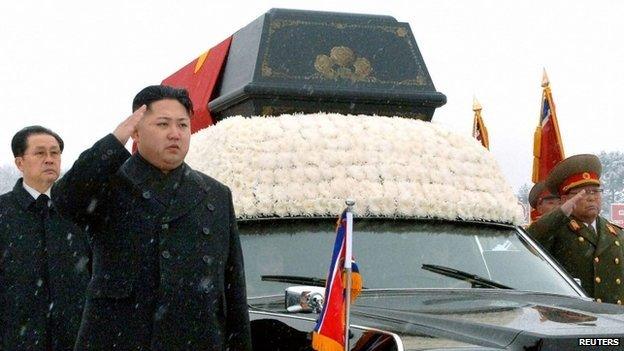
When Kim Jong-il died in 2011 it was Chang Song-thaek, the man who married his sister, who stood right behind the young new leader Kim Jong-un flanking the hearse as it processed through Pyongyang.
He is thought to have mentored his nephew during that crucial transition. Analysts believed he was a powerful force, advising his nephew as he took the helm.
But in early December a closed intelligence briefing in South Korea's parliament heard he had been dismissed
The extraordinary news coming from North Korea was promptly leaked to the media by an opposition lawmaker. South Korean spies told a parliamentary committee that he had been removed from key posts and that two of his close confidantes had been publicly executed in mid-November.
It appears to be North Korea's most significant political upheaval in years
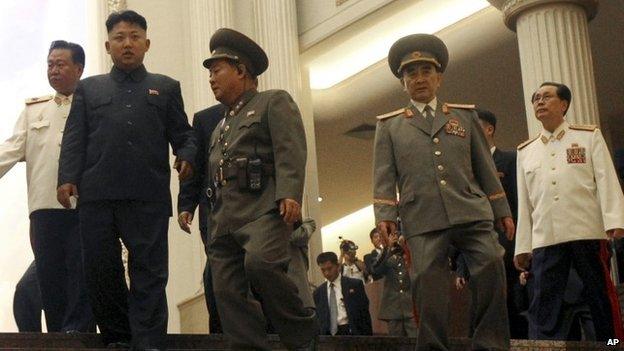
Chang Song-thaek (far right) was seen in public with Kim Jong-Un and North Korea's top military leaders as recently as July
Within hours South Korean intelligence told media that they had indeed heard that Chang Song-Thaek had been removed as vice-chairman of the North's top military body, the National Defence Commission and as a department head of the ruling Workers' Party.
The uncle is edited out of North Korean history
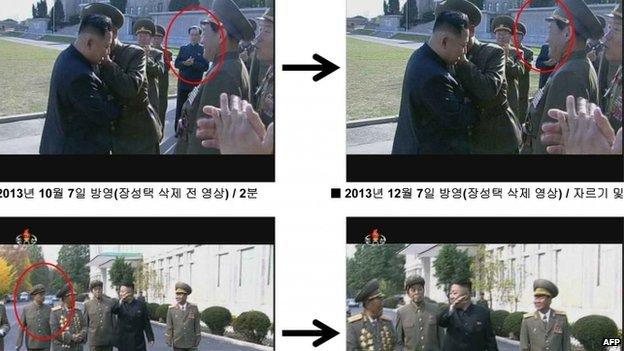
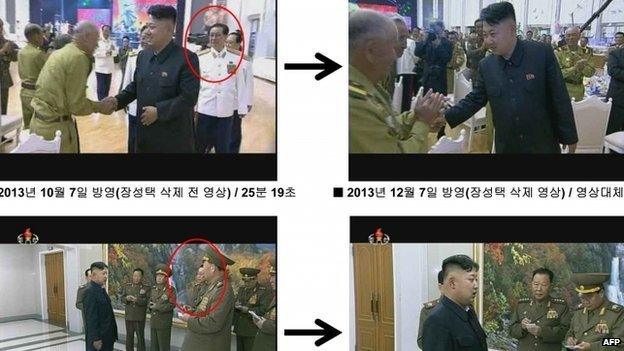
Still without official confirmation from the north, it became clear that he had at least fallen out of favour when state TV edited him out of a documentary that had reportedly been broadcast nine times already.
When The Great Comrade aired the weekend after news filtered out of Chang's dismissal, it was without pictures of the leader's uncle. He had been comprehensively cut out the film.
Photos confirmed his dismissal was public and absolute
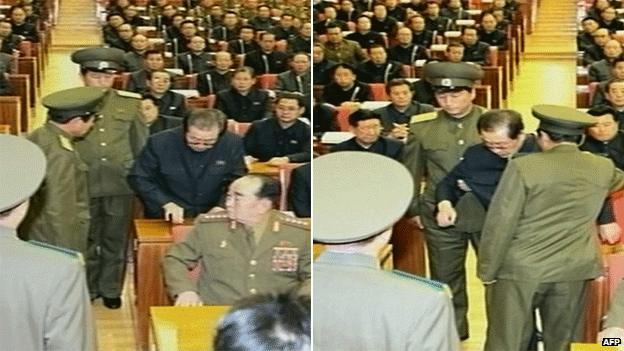
Finally, on 9 December, North Korea provided confirmation in an unprecedented manner by releasing images of Chang Song-thaek being removed from a public meeting. Pictures released by the KCNA state news agency show uniformed guards approaching Chang Song-thaek.
The guards then appear to remove Mr Chang from his seat in full view of his former colleagues - some stare impassively at the proceedings while others keep their eyes downturned.
Kim Jong-un ensured a full public humiliation
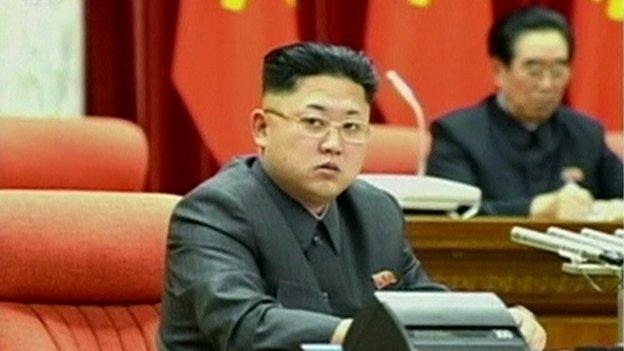
The series of images played out on KCNA that day focused heavily on Kim Jong-un.
Some analysts believe this was his way of augmenting power and asserting his independence. Others say it was his way of instilling fear into an older generation of leaders who may have felt they were better qualified to influence North Korea's future direction.
But breaking new ground again, KCNA state news agency published a violent and personal attack on Mr Chang, accusing him of forming factions against the state and of abuse of power, drug-taking and womanising.
State media announces Chang Song-thaek's trial and execution
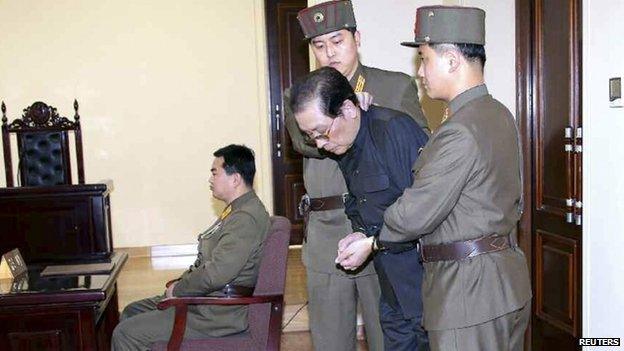
Days later, on 13 December, state media announced that Mr Chang had been tried for factionalism with the aim of overthrowing the state. It said he confessed and condemns him as "a traitor for all ages".
He was sentenced to death and then the release reads: "The decision was immediately executed".
North Korea's public is told of the execution of a 'wicked political careerist'
State TV in North Korea announced the execution of a "wicked political careerist"
News of his execution on state television was accompanied by a denunciation of Chang as "despicable human scum Jang, who was worse than a dog" and accusing him of treachery and factionalism.
Citizens crowd around public newspapers to read of his fate
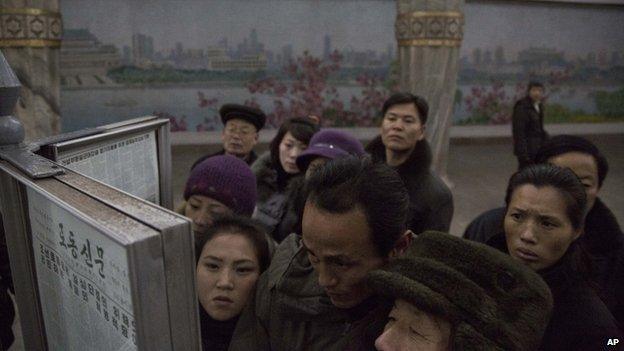
Pictures emerged of how the North Korean public received news of the execution. Some crowded around newspapers on public train platforms. While leaders have fallen out of favour in the past, what marks the latest events is the swift, brutal and public nature of Chang's fall from grace.
What happens next is far from clear but many analysts agree that this could signal a wider purge.